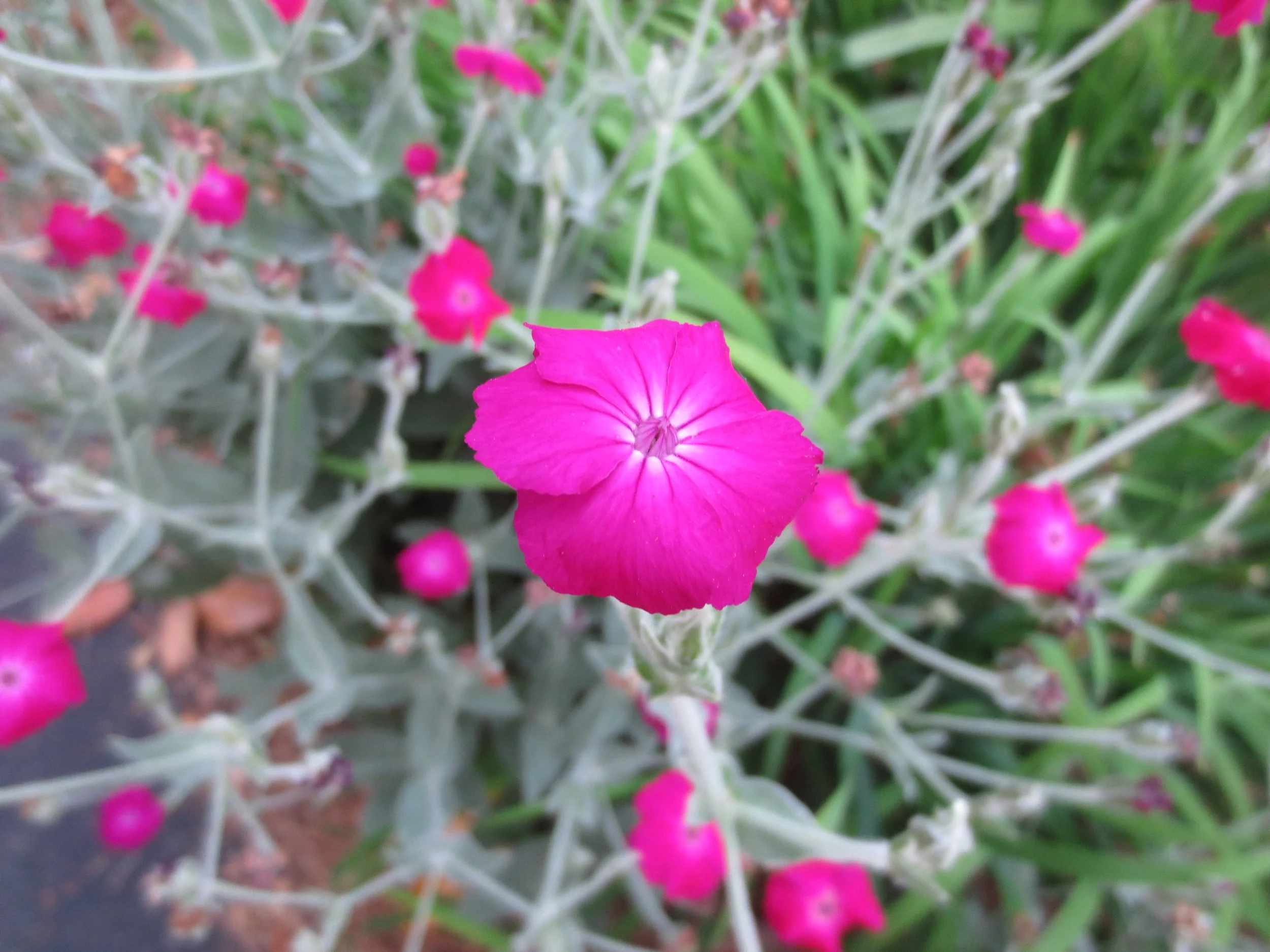Oops – I did it again. Another impulse purchase of a plant that may not be a good choice for my area. One of the local grocery stores has strategically placed their flower section directly in my path, between the salad bar (packaged salads during the pandemic) and the fresh fruit. I’m already needy when I go in, and those small containers of cute potted plants seem to jump in my cart without my involvement. This week’s purchase was a pair of tiny (2.5-inch containers) Campanula. That was the only identifier on the label. No mention of the species. Sigh…
It could be Campanula carpatica, C. glomerata, C. persicifolia, C. takesimana, C. rotundifolia, C. medium, C. punctata, or C. rapunculoides. The one thing all these species share is ease of growth. A few prefer cool summers. Most (but not all) have bell-shaped flowers. (The common name is Bellflower or Canterbury Bells.) Most are in shades of blue or purple, but a few are pink, lilac or even white. My newest acquisitions are a deep purple, with upward facing blooms. Unless appearances are deceiving, it will be a dwarf, spreading form.
In the Snoddy garden, Campanula punctata ‘Pantaloons’ has been a star performer during the last ten years. A single plant, situated in poor soil with partial shade, spread rapidly via rhizomes and seeds to make a large, lovely community without any deadheading, staking, fertilizing or watering. Campanulas prefer neutral to alkaline soil, but mine has done fine in acidic soil. The punctata species is perennial in zones 5 through 9. It has a long, long bloom period. Deer shun all Campanulas.
‘Pantaloons’ was a gift plant from the gentleman who taught most of my Master Gardener classes in 2002. He labeled the plant “Purple Pantaloons” which reminded me, oddly, of the saloon girls in old television Western shows like Gunsmoke. Mr. Maple is deceased now, but his memory lives on in my garden.
Campanula punctata. Image by GLady from Pixabay.
“Bearded Bellflower” showing the fuzzy threads that gave rise to the common name.



